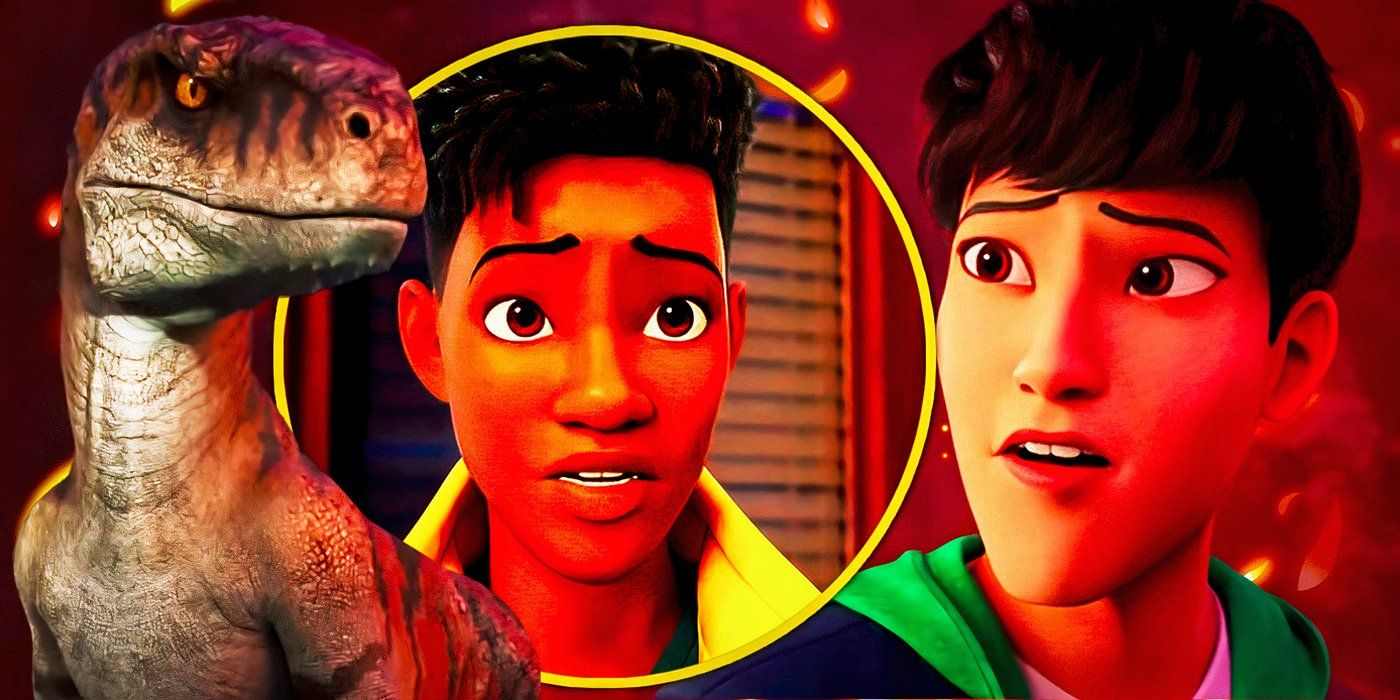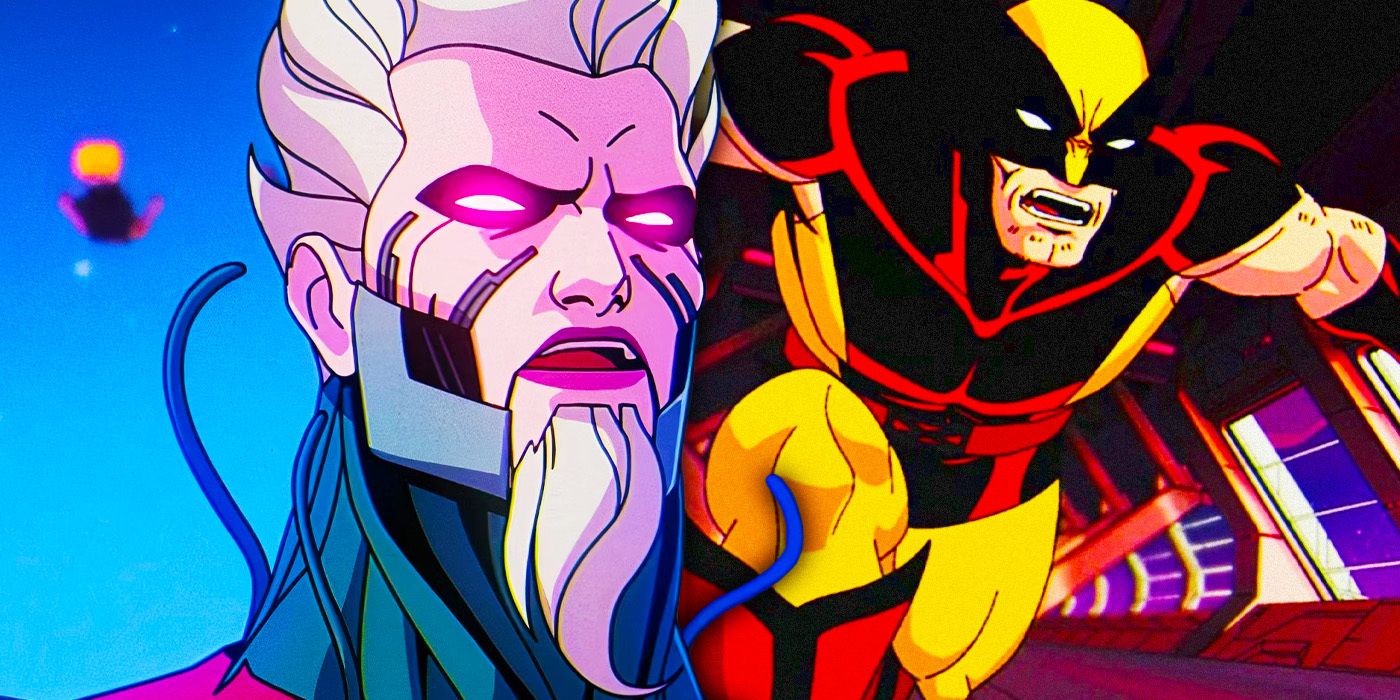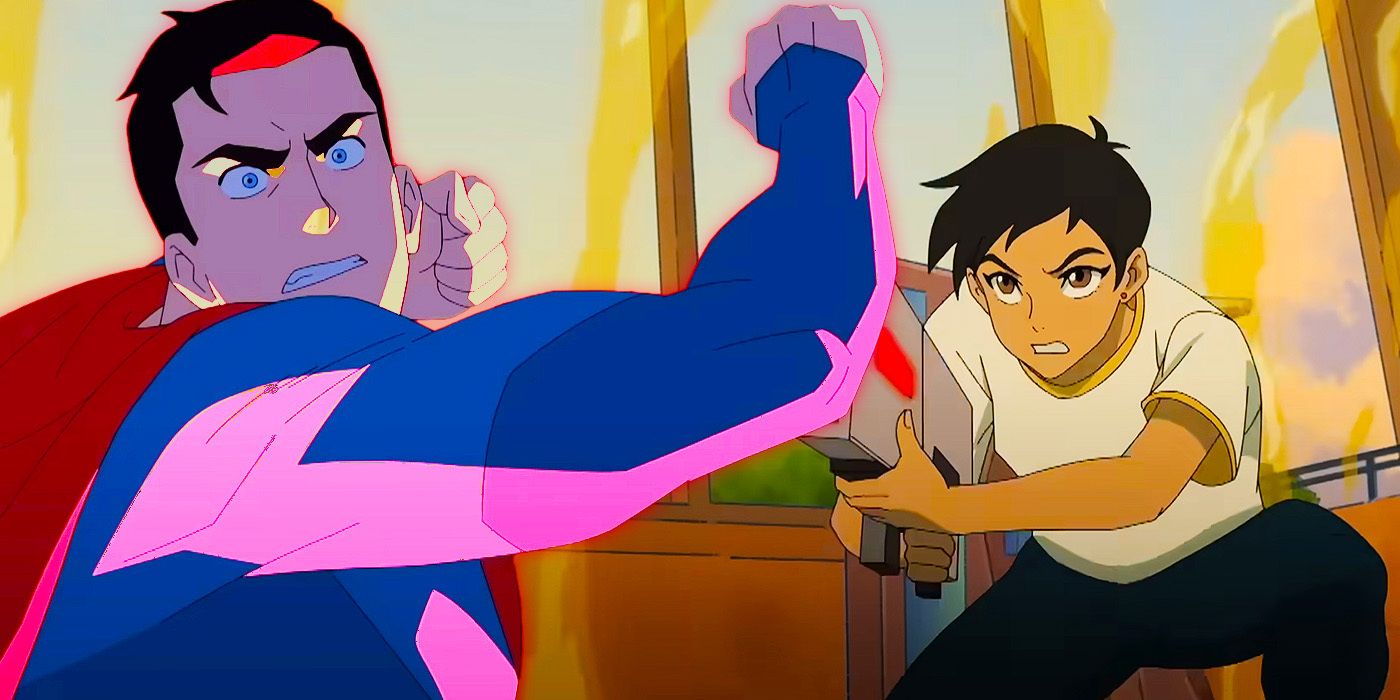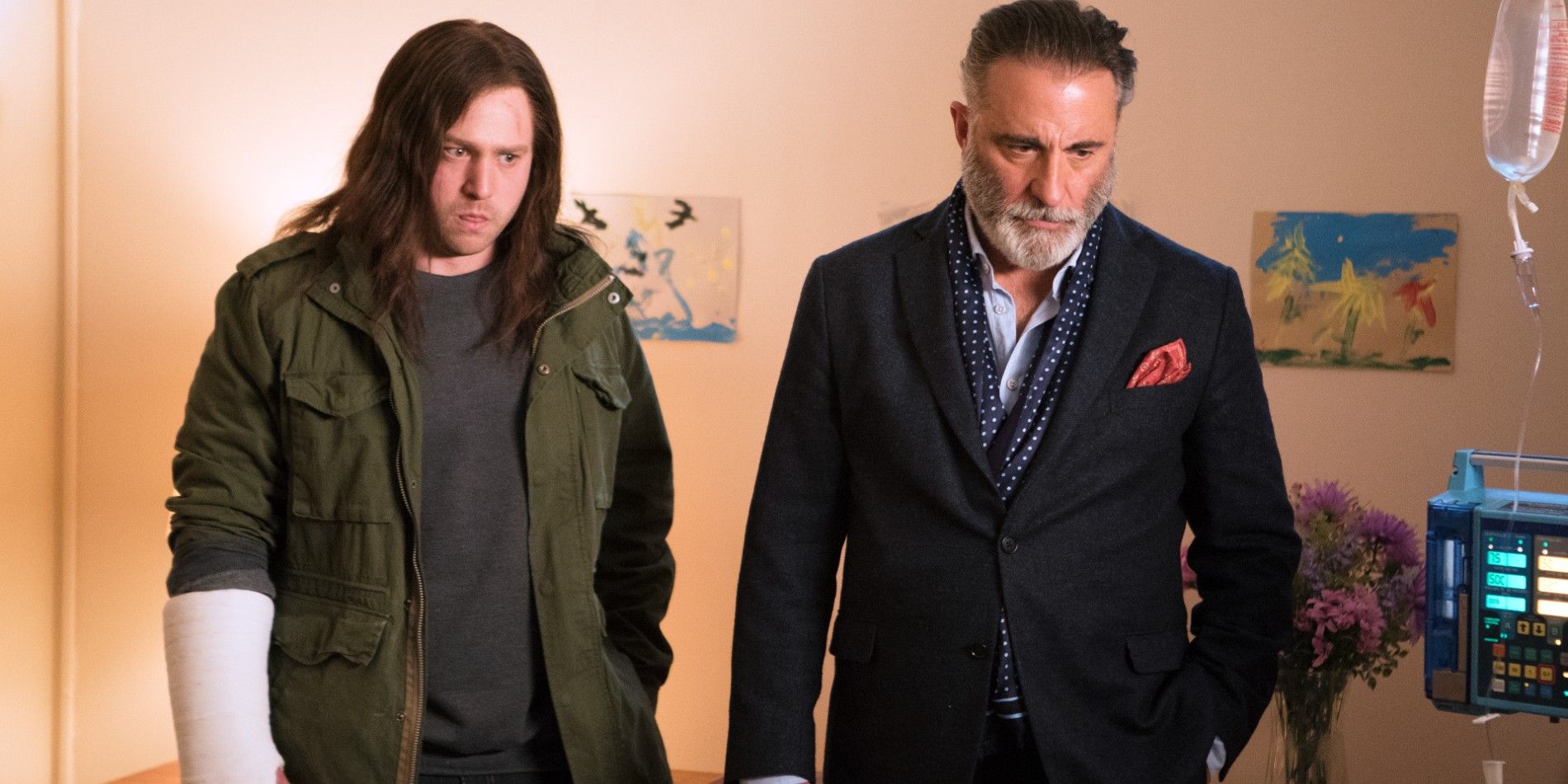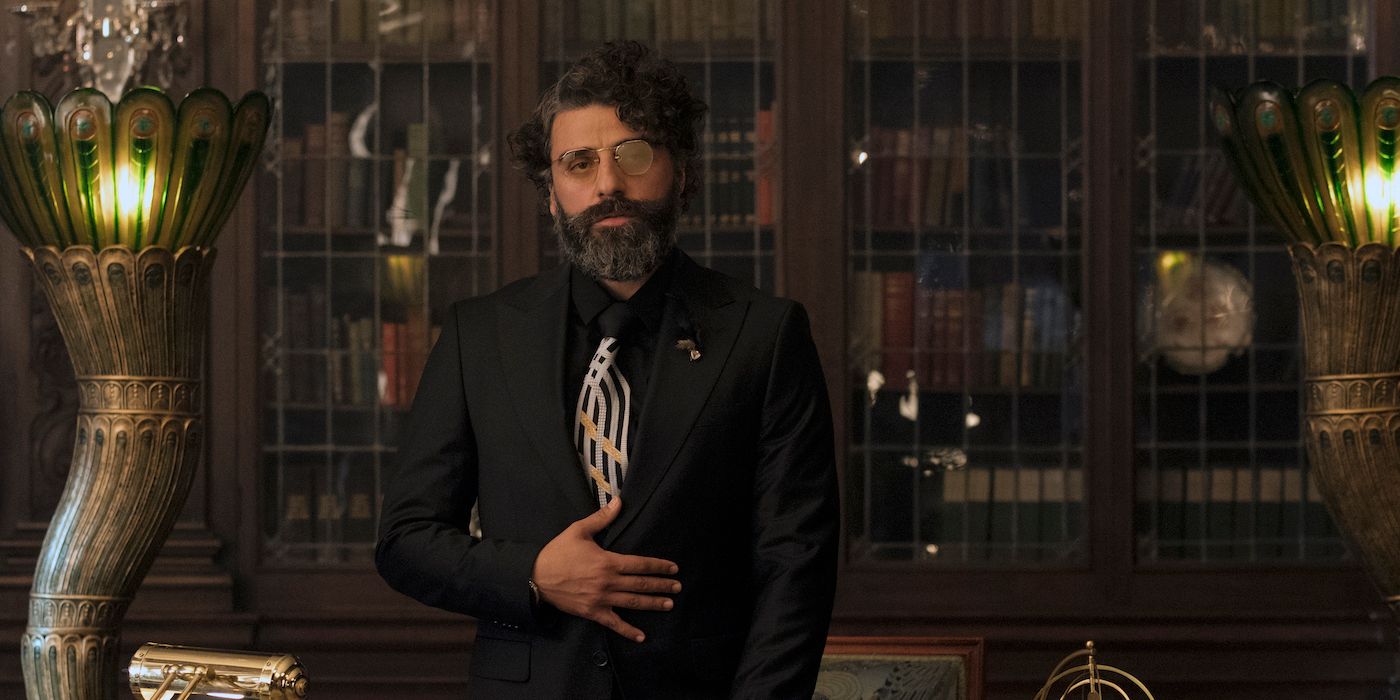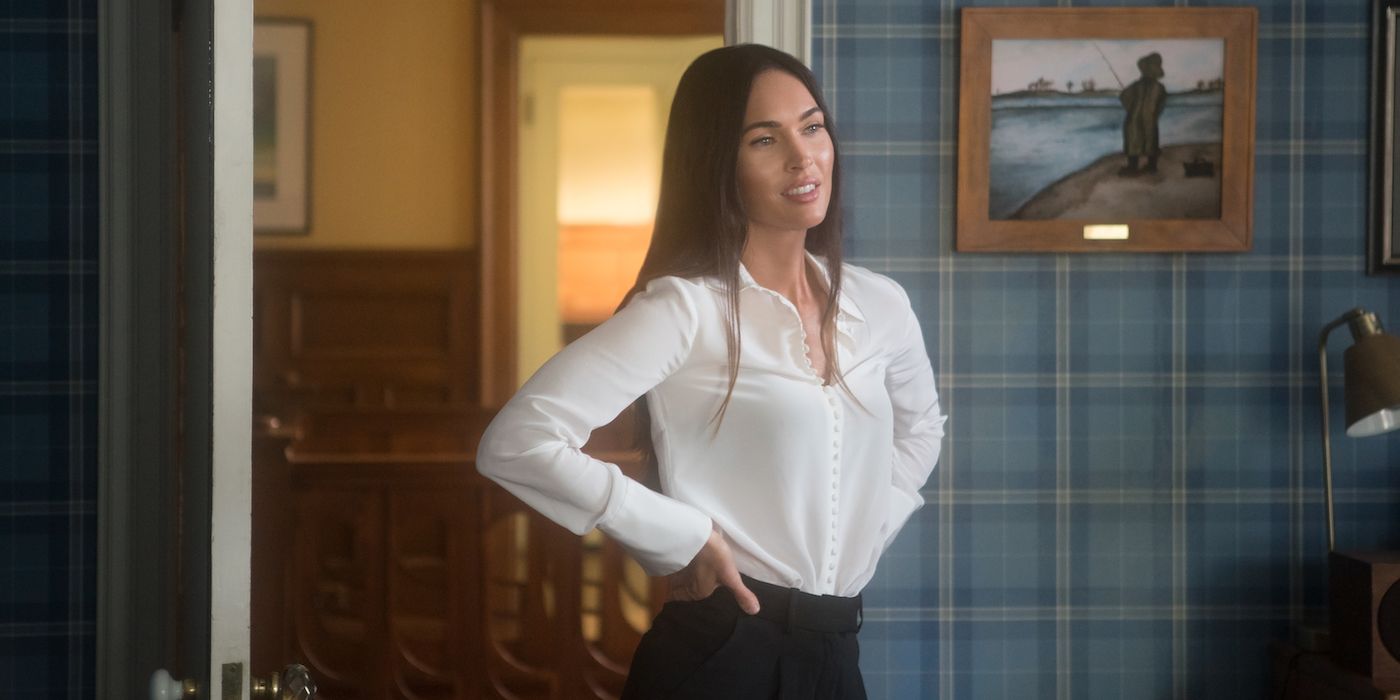Emory Cohen stars in the genre-bending, dark comedy, Big Gold Brick, alongside the legendary Andy Garcia. Cohen plays oddball Samuel Liston, who is hit by a car driven by Floyd Deveraux, played by Garcia, who then enlists Samuel to write his autobiography after the accident.
Cohen spoke with Screen Rant ahead of the film's release to discuss working with the first-time visionary, director, Brian Pestos. He dives into Pestos' method of getting the best out of his actors and what he learned about himself through portraying Samuel Liston.
Screen Rant: You never disappoint in any role you're ever in and this one is very different, I've never seen you in a role like this. Can you talk to me a little bit about Sam played by you and Floyd played by Andy Garcia in their relationship throughout the film?
Emory Cohen: Yeah. I didn't need to reach far for anything about the way Sam felt about Floyd. I mean, Andy Garcia was so great and fun and funny and easy to work with. Samuel, for me, I saw the character as being a comedic character and I've never really done anything like that. It was just exciting to get to stretch those muscles and try to take it on. It was a lot of fun. I loved Brian Petsos, I loved working with Brian. I had a really great time making the movie.
There's something about Samuel and Floyd's relationship where by the end of the film you really get to see that these two guys need each other. With the character of Samuel, what did you want to bring to the role that wasn't necessarily on the page?
Emory Cohen: I was really influenced by the physical comedy of Chris Farley, everything he did with Tommy Boy, all that and all sketches. I remember really early on Brian came up to me and he goes, "You're playing the character more comedic than I thought you would," and I was like, "Is that okay?" He was like, "Yeah," and I was like, "Great." I mean, to be honest, I wanted to make a slapstick physical comedy that's what I thought. If you watch Oscar Isaac's performance in ‘Ticky Tacky’ and ‘LIGHTNINGFACE’, they're just so unique and amazing. It felt like if I didn't go for that, I would've really missed the opportunity that was being given to me by Brian to utilize a very physical slapstick. That was the arena that I thought I was in and it was a lot of fun to play in that world.
This is a masterclass for in characters because I think he crafts the characters so specifically but so well and tailored to you guys. You blew me away with your performance and Andy Garcia, he lives in his character. I know it's Andy Garcia but he really disappears into Floyd. What surprised you the most about Andy's performance in this film?
Emory Cohen: I think what surprised me the most was just, I knew he was going to come in and kill it, we're talking about Andy Garcia here. I think that it's something you see this person perform in all these other projects, I'd say that working with him, I was stunned by his sense of ease. The way that he could just walk in and start the scene and Samuel has a lot of tension and there's a lot of stuff that's going on that he doesn't understand and a lot of it is created in this kind of silent looks. It was really fun to play off someone when you have to create all that kind of tension and angst and confusion to then play off with someone who's so at ease. There's that little part of you in the back of your mind, that's still just an actor. That's just, "Oh, this is fun. I get to do a movie with Andy Garcia, this is cool."
Your director Brian Pestos, was also a performer and an actor. How did his experience in front of the camera, how does that help prepare you guys?
Emory Cohen: It helps because Brian thinks like a director but in some ways, he talks like an actor, in some ways he acts like an actor. Being around him as a person, he's very performative in how he tells a story, and the lines between director and performer and writer and performer are I find are often blurred when I'm with him just hanging out, getting some food or something. It just makes me feel more at ease. He's very cerebral, like most directors but most directors are very cerebral but Brian's also really in touch with his emotional center. I'm an actor man, I got no business writing a movie, I got no business directing. I tried to write something and it wasn't good so I operate from the emotional center and it's just nice when you can play with another person in that way.
This is Brian's first feature film which actually, surprised me because I thought he crafted this really well. What does his directing style add to Big Gold Brick?
Emory Cohen: It was very different from anything I've dealt with. In some ways, it was comparable to Derek Cianfrance in some ways. With Derek, you improvise, Derek gives you a lot of freedom and Brian gives you a lot of freedom but they also both have such a strong point of view and a strong understanding of cinema that for my experience when they tell me to do something, I do it and I trust it implicitly and I just go for it. Brian would do this thing at the end of takes where he would just give you five different ways to play. Just looking off into space like the scene was over. I remember we were shooting the scene where I was in therapy and he goes, "Now, look around like you think someone may be followed you to the therapist's office," and that had nothing to do with the scene. But because it's Brian, I'm just like, "Cool, let's do it. Let's see what happens." It got to the point where Brian told me, "Go run through a wall," I'd go run through a wall, man.
See these are the stories I love to hear because I would've never known that, you know what I mean?
Emory Cohen: I wouldn't have either until I was out there on set with him. That's why I'm just so fortunate to have gotten to work with him and be a part of this film.
Man, I know in other interviews you say that when you play a character, you learn more about yourself through empathy. What did you learn about yourself through Samuel?
Emory Cohen: I really learned how much we need to rely on other people to show us the way. I really learned about how I don't have all the answers. You can't see your blind spots that's why you need friends. That a lot of Samuel's journey is learning who he is through Floyd and I've been blessed and fortunate, I've had a couple of people in my life who's really shown me and taught me how to be a human in this world. That's definitely, something I related to and learned more about making the movie.
Now, the last question I have for you is I know you approach this role for more of a slapstick comedic angle. What challenges did you face in bringing the character to life, what was the biggest challenge of bringing Samuel to life?
Emory Cohen: I think that the challenges were nights before. You can think of the stuff you want to do for weeks and months but you don't know if when you show up something in your operating system is going to give you permission or not to go for it. It's something about Brian, something about shooting in Toronto, I love shooting in Toronto, something about the size of the film. We have a lot of great actors in this movie.
But it was an independent film and it just made me feel really comfortable to really go for it. The challenges are the nights before, are like, "Oh my God, am I really going to do this or what if I look foolish or what if it just doesn't happen, what if I'm just shocked on set and I just don't know what I'm doing?" Luckily Brian created a space where we all just jumped in and went for it.


